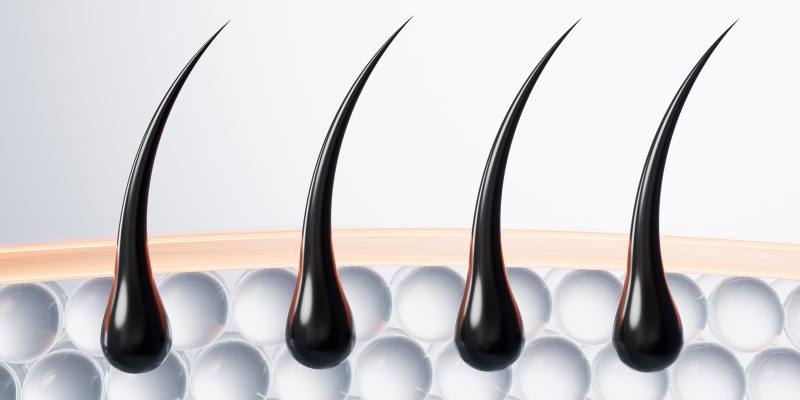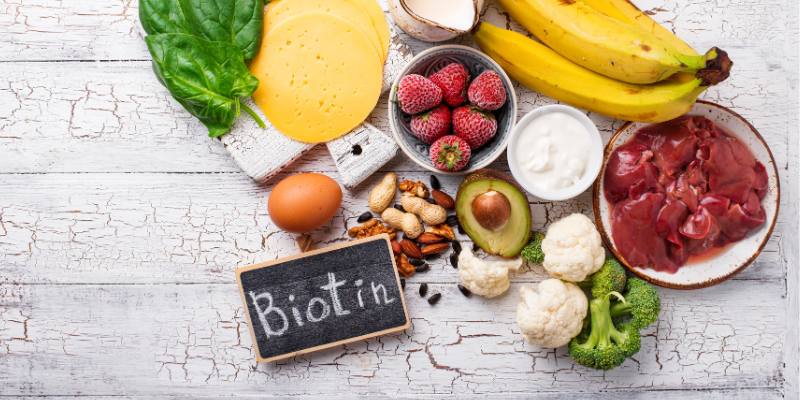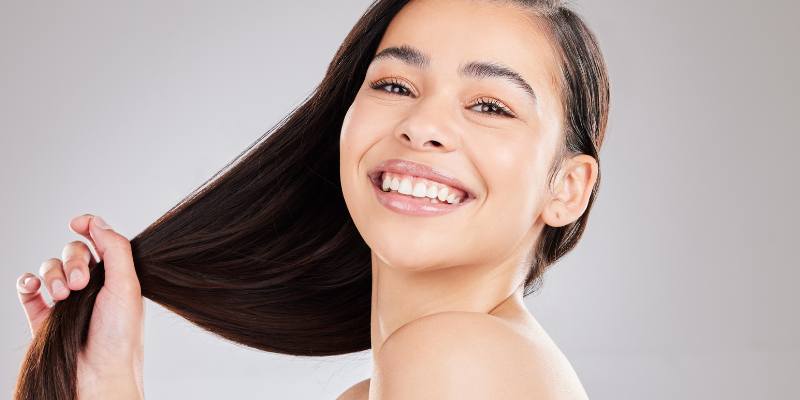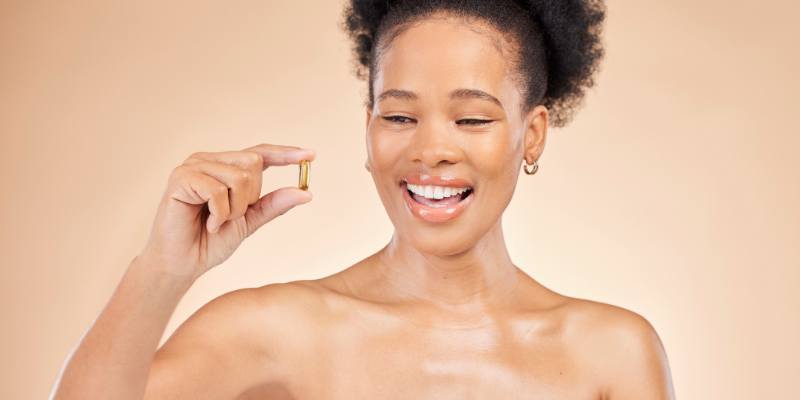Hair loss can be a frustrating and sometimes embarrassing experience.
You might blame genetics, stress, or even harsh styling products.
But what if the answer lies not in what you're putting on your hair but in what you're not putting in your body?
There's a strong connection between nutrition and hair health.
Let's explore how diet can impact your locks and what you can add to your plate to keep your hair healthy and strong.

Hair Today, Gone Tomorrow? How Food Choices Affect Hair Growth
Hair is made mostly of a protein called keratin.
For your hair to grow strong and healthy, it needs a steady supply of essential nutrients delivered through your bloodstream to the hair follicles.
When your diet lacks these key nutrients, hair growth can falter, leading to thinning, breakage, and even hair loss.
Nutrients for Glorious Hair: What to Eat for Strong Strands
So, what should you be feeding your hair follicles?
Here are some essential hair-friendly nutrients:
- Protein: The building block of hair, protein is crucial for hair growth and strength. Lean meats, fish, eggs, beans, lentils, and nuts are all excellent sources.
- Iron: Iron deficiency is a well-known cause of hair loss. Include iron-rich foods like red meat, liver, spinach, lentils, and fortified cereals in your diet. Omega-3
- Fatty Acids: These healthy fats promote scalp health and hair growth. Fatty fish like salmon, mackerel, sardines, flaxseeds, and walnuts are rich in omega-3s.
- Vitamin D: Studies suggest a link between vitamin D deficiency and hair loss. Fatty fish, egg yolks, and fortified milk are good sources of vitamin D.
- Biotin: While a true biotin deficiency is rare, some studies suggest it may affect hair health. Biotin can be found in eggs, nuts, avocados, and whole grains.

Beyond the Basics: Other Dietary Factors to Consider
While these nutrients are essential, overall dietary health also plays a role.
Restrictive fad diets or those lacking sufficient calories can deprive your hair follicles of the nutrients they need to thrive.
Aim for a balanced diet rich in fruits, vegetables, and whole grains to ensure you're getting a full spectrum of vitamins and minerals.
So You Think You Might Have a Nutritional Deficiency?
If you're experiencing hair loss and suspect it might be linked to your diet, consult a doctor or registered dietitian.
They can assess your needs and recommend a personalized plan to address nutritional deficiencies.
Remember, a healthy diet is not just about keeping your hair healthy; it's about keeping your whole body functioning at its best.
Nourish Your Body, Nourish Your Hair
Incorporating these hair-friendly nutrients into your diet can support healthy hair growth from the inside out.
Remember, a well-balanced diet is vital to overall health and well-being, including keeping your hair strong, shiny, and oh-so-fabulous. So, stock up on those healthy foods, and watch your hair flourish!
At Wig Medical, we understand that hair loss can be distressing.
That is why we are focused on providing individualized solutions. Contact a cranial prosthesis specialist from of our team today to learn more!

Five Things You Need to Know about Nutrition and Hair Health
Nutrition plays a vital roll in all aspects of your health, including your hair.
Focusing on these could have a bigger benefit than just your hair!
1 - How does nutrition affect hair health?
Nutrition significantly impacts hair growth and quality since hair follicles require a mix of nutrients to generate healthy hair.
Poor nutrition can lead to hair loss, weak hair strands, and a lackluster appearance.
Key nutrients such as proteins, vitamins, and minerals directly support the hair growth cycle, keratin production, and overall scalp health.
2 - Should I consider nutritional supplements for hair health, and what should I look out for?
While a balanced diet is the best way to obtain necessary nutrients, supplements can be beneficial, especially if you have a diagnosed deficiency.
However, it's important to consult with a healthcare provider before starting any supplements, as excessive intake of certain nutrients can also cause hair loss or other health issues.

3 - Can nutritional deficiencies lead to hair loss?
Yes, deficiencies in key nutrients such as iron, protein, zinc, and vitamins D, B (especially biotin), and E can lead to hair loss.
When the body lacks these nutrients, it redirects its energy towards vital functions, away from hair growth.
Over time, this can result in shedding and decreased hair production.
4 - What foods should be included in a diet to support hair health?
A balanced diet rich in vegetables, fruits, whole grains, lean proteins, and healthy fats can promote scalp and hair health.
Specific foods include:
- Leafy greens: High in iron and vitamins.
- Nuts and seeds: Sources of omega-3 fatty acids, zinc, and vitamins.
- Lean meats and fish: Provide protein and iron.
- Eggs: Rich in biotin and other B vitamins.
- Berries and citrus fruits: Great sources of antioxidants and vitamin C which aids iron absorption.
5 - Are there any dietary habits that can harm hair health?
Yes, certain dietary habits can negatively impact hair health:
- Restrictive dieting: Severely limiting calorie intake can deprive your body and hair of the necessary nutrients.
- High sugar consumption: This leads to inflammation and may exacerbate hair loss.
- Excessive vitamin A intake: Over-supplementation can cause hair loss.
- Not drinking enough water: Dehydration can halt hair growth.
Now that you know more about how nutrition can affect hair loss, what have you experienced with this? Let us know in the comments below!

